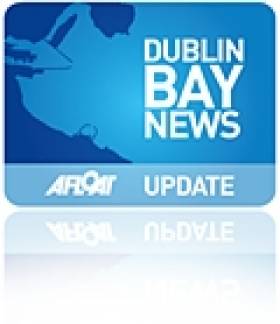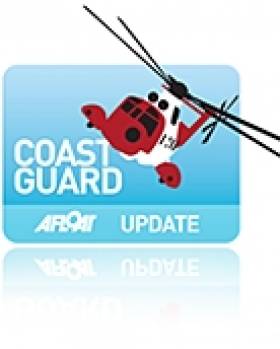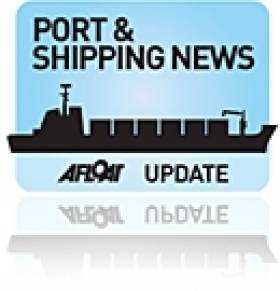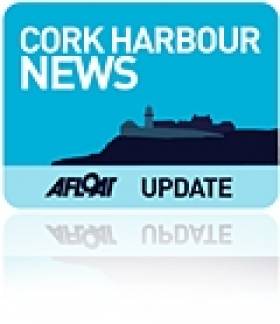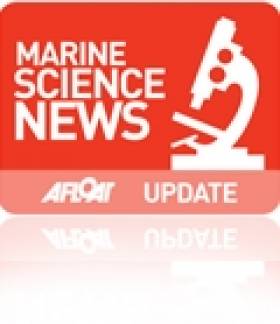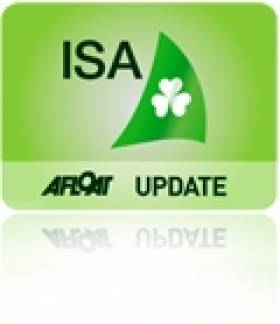Displaying items by tag: jobs
National Maritime College Open its Doors
Situated on the shores of Cork Harbour this magnificent facility has both a National and International reputation with students from as far away as the United Arab Emirates. For the Open Day, representatives from International Shipping Companies and Maritime Organisations will be available on site to provide information about careers in the industry.
There will be tours of the College, including the multi-million euro shipping simulators, sea survival centre and engineering workshops.
Details on course opportunities at the NMCI will be available at the Open Day – Tuesday, October 25th. For further information please contact phone 021 4970607
Dun Laoghaire Diaspora Centre Seeks Funding
Dun Laoghaire's planned new diaspora centre will rival the likes of Sydney Opera House, according to the semi-state body behind the proposal.
Dun Laoghaire Harbour Company estimates the cost of the project at €50 million. Most of this will come from EU and State funding, but some €15 million in donations will be required for the scheme to go ahead.
It's expected that this money will come from corporate donors and private investors, both at home and among the diaspora.
Discussions have also begun with a view to twinning the centre with the Ellis Island memorial in New York.
The diaspora centre would directly provide 200 jobs in Dun Laoghaire, which hopes to begin welcoming the latest breed of cruise liners to the harbour next year.
Concerns Over Belfast Coastguard Jobs
Concerns persist over the future for Northern Ireland’s coastguard service staff - despite the British government backing down from plans to close the Bangor search and rescue centre.
As previously reported on Afloat.ie, the Bregenz House station was given a reprieve under revised proposals to streamline the UK's coastguard network.
However the coastguard workers' union told the Belfast Telegraph that assurances must still be given to preserve "the same level of service”.
Ian Graham of the Public and Commercial Services (PCS) union said: "The numbers they’re quoting in the proposals are not providing this service with enough staff.
"Lives are still at risk with these proposals, there isn’t one UK coastguard I have spoken to that doesn’t disagree with that. We need to keep fighting to safeguard the service. This was a small victory.”
The Belfast Telegraph has more on the story HERE.
Wexford to Host Irish Ports Conference 2011
The Irish Ports Conference 2011 is set for Friday 30 September in Wexford.
The theme of this year's one-day conference is 'Navigating a Sea of Change: Delivering Jobs Through Trade'.
Rosslare Europort will be hosting the event at the Ferrycarrig Hotel in Wexford Town.
Further information and booking details will follow shortly.
Marinas Could Make a Difference to Cork Tourism
Developing marinas on the Cork coastline is a top priority for county manager Martin Riordan.
Speaking to the Evening Echo recently, Riordan outlined plans to exploit tourism for job creation, focusing on Cork Harbour and the county's 680 miles of coastline.
"We need to develop a honey pot around Cork Harbour," he said. "An in terms of marinas, there is scope for another two or three marinas aroind the coast."
Riordan pinpointed Youghal and Schull as two preferred locations.
"I think Fáilte Ireland shoud be giving funding to get one or two of these marinas started," he added, noting that Cork County Council was prepared to provide council-owned land for the projects.
"If we could get another three marinas in the next four or fives years it would make a big difference to tourism," he said.
4NI reports that tenders have already been invited for a hotel and berthing area in Youghal.
€6.4 billion EU Fund for Smart Growth and Jobs has Opportunities for Irish Marine Sector.
The European Union has opened its latest round of financial support for collaborative research and innovation announcing nearly €6.4 billion in new investment under its 7th Framework Research Programme (2007-2013) and there are opportunities relevant to the Irish marine sector.
This new call offers a range of competitive opportunities to support collaborative pan-European research across a number of sectors including health, food, ICT, energy environment, maritime transport, etc., as well as support for regional and specialist research infrastructures and support for SMEs.
According to the Commission Press Release, the package, the biggest ever, covers a vast range of scientific disciplines, public policy areas and commercial sectors. This funding will advance scientific boundaries, increase European competitiveness and help solve societal challenges such as climate change, energy and food security, health and an ageing population.
Around 16,000 participants from research organisations, universities and industry, including about 3,000 SMEs, will receive funding. Grants will be awarded through competitive calls for proposals and evaluations over the next 14 months. This package is an economic stimulus expected to create more than 165,000 jobs and a long-term investment in a smarter, sustainable and more inclusive Europe. It is also a key element within the EU's Europe 2020 Strategy and in particular the Innovation Union flagship initiative, which will be launched in autumn 2010.
A summary of opportunities relevant to the marine sector and direction to further sources of information is available in the attached FP7 Marine Information Note MarineSciencesFundingOpportunitiesinFP7July2010.pdf
Last day for Development Officer applications
Today is the last day for applications for the Irish Sailing Association development officer post, to be based in its Dun Laoghaire offices. The role involves supporting clubs and teaching establishments in growing their activities and membership and promoting the ISA's training agenda nationwide.
Details are here.




























